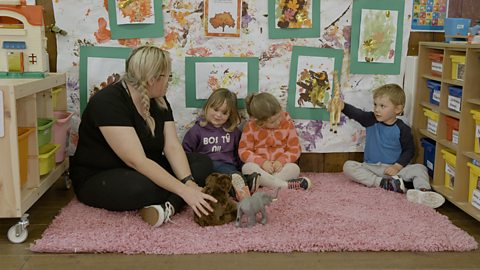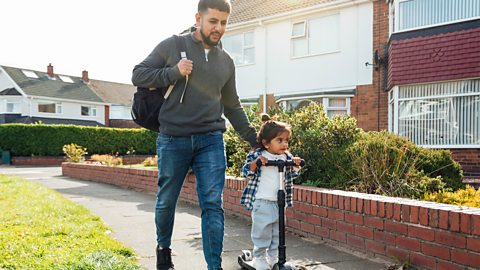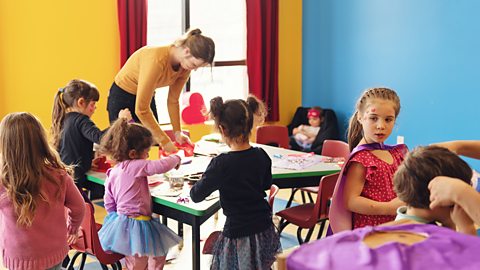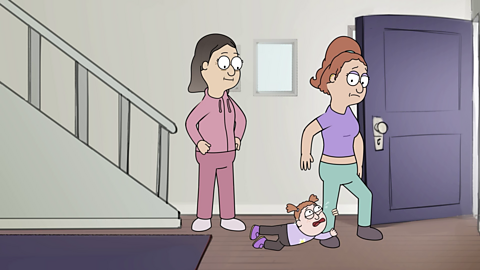When your child starts nursery, they will be given a key person who will support them up until they start school.
But what is a key person's role in your child's development? And what do they do on a daily basis to support your child's learning?
We spoke to Lisa about her job at a nursery and what parents can expect from their child's key person.
My name is Lisa and I’m a nursery manager and key person.
[To Children] The giraffe!
The children are our responsibility from the moment they step in the door till the minute they leave.
We are government inspected in just the same way as schools are.
[To children] Well done Maison for helping her.
Every child in an early years setting has a key person assigned to them and their main point of contact responsible for finding out all about them. Their personalities, likes and dislikes and their routines.
I’m also their main contact for their parents and share information with them about what their child has done during the day’s session.
[To children] What are you going to do tomorrow? [Child] Painting. [Lisa] Painting.
I’ll keep a record of observations I have made, usually in a learning journal that documents a child’s progress. Using this, I’ll plan further learning activities that are based on the child’s individual interests and needs.
If there’s anything a parent wants to discuss or anything they’re worried about, or they just want to chat, they can come to me.
Being a key person is like being a part of the family.
[To children] Maddie!
My job is to be the parent in a childcare setting and it’s really important that the parents feel comfortable leaving them with me.
I have my level 5 in leadership management and child development, and I’ve been in my role the last 14 years.
I love my job. It’s so rewarding to see the children coming into the setting every morning smiling.
[To children] Wow Maison… Ready? Go!
[To children] Let me see your funny faces!
I highly recommend working with children, it keeps you young!
What is a key person?
Every child in an early years setting has a key person assigned to them. This member of staff will be the main point of contact for you and more importantly for your child.
You should be told who this key person is and have their role explained to you when your child starts in their care setting.
The key person will get to know you and your child really well so they can understand and meet their needs.

They will keep a record of observations they have made and document your child’s progress. This understanding will help them plan learning activities based on your child’s individual interests and needs.
They can give you verbal updates and written summaries about how well your child is progressing in their learning and development.
As a parent, if there's anything you want to discuss or anything you're worried about, you can talk to your child's key person.
How can you help your child's key person?
- Talk to your child about their key person so that they know they can go to them for help.
- Mention them in conversations at home, as if they are part of the family.
- Before starting nursery, you could show your child pictures of their key person.
- Keep the key person updated with any changes in routines or changes in your child’s home life.
- Share any new interests your child may have with the key person.

Is your child starting nursery or childcare soon? Check out these top tips from educational psychologist Dr Alison Gurney about preparing your child for this journey.






